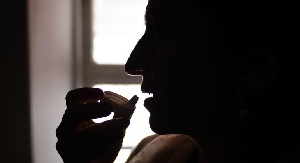Africa News of Friday, 6 June 2025
Source: www.ghanawebbers.com
Africa: Aids Still Killing One Person Every Minute As Funding Cuts Stall Progress
AIDS-related deaths have reached their lowest level since 2004. However, the situation remains fragile. The disease still claims one life every minute. Funding cuts are severely disrupting HIV services and threatening progress.
Over 30 million people receive lifesaving treatment worldwide. Amina Mohammed, UN Under Secretary-General, called this a "multilateral success." She spoke during the General Assembly's review of AIDS progress.
"Global commitment is fading," she warned. Funding is decreasing, and HIV services are being disrupted. This "series of threats" could reverse decades of progress against HIV.
As funding declines, clinics are closing. Treatment supplies are running low. Vulnerable groups, like adolescent girls and young women, face greater risks.
PEPFAR funding for HIV efforts in Africa may face permanent cuts. UNAIDS warns of devastating consequences without continued support. By 2029, an estimated four million additional AIDS-related deaths could occur.
"We cannot let short-term cuts destroy long-term progress," said Ms. Mohammed. "We need to keep fighting."
The funding crisis requires urgent attention. Many sub-Saharan African countries spend more on debt than healthcare. Ms. Mohammed emphasized the need for debt relief and increased international support.
"Low and middle-income countries need sustainable HIV financing," she stated. Stronger national leadership is also essential in the fight against AIDS.
She condemned attacks on human rights that worsen stigma against marginalized groups. "Protecting health means protecting human rights," she said.
Many community-led organizations face defunding at a critical time. Ms. Mohammed urged support for these groups and their vital work.
"The end of AIDS is not a mystery," she noted. Eliminating the disease by 2030 is still possible, but success is not guaranteed.











